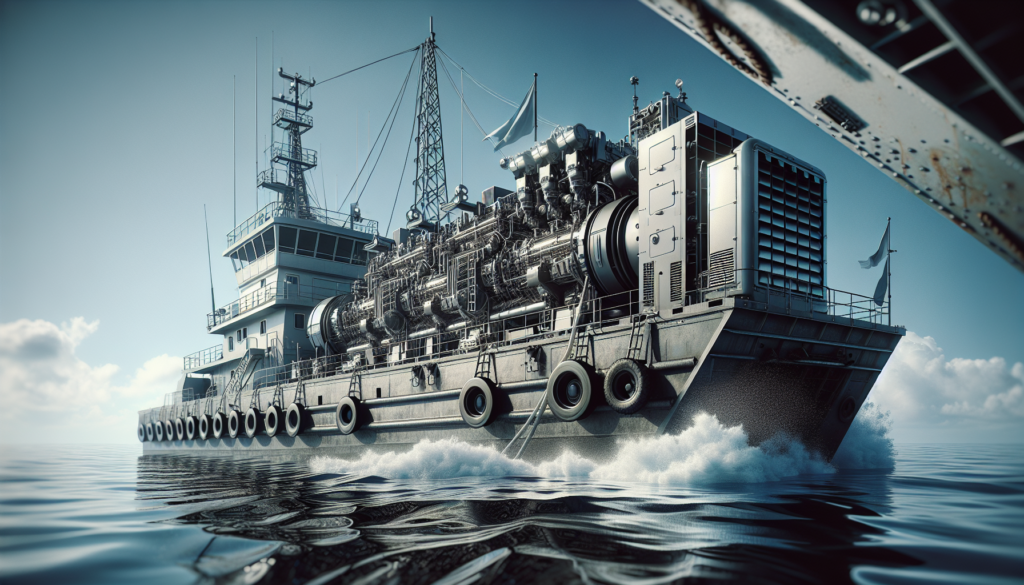Exploring the Depths: A Comprehensive Guide to Marine Generators
Marine generators, often overlooked in the grand scheme of maritime technology, play a crucial role in powering vessels of all shapes and sizes. From luxury yachts to massive cargo ships, these generators provide the necessary electricity to keep the engines running, lights on, and systems operational. In this detailed guide, we will delve into the world of marine generators, exploring their functionality, applications, and impact on the maritime industry.
The Evolution of Marine Generators
Marine generators have come a long way since their humble beginnings. In the early days of seafaring, ships relied on wind power and human labor to propel them forward. However, as technology advanced, the need for a reliable source of electricity became apparent. The first marine generators were steam-powered, using coal or wood as fuel.
With the advent of diesel engines, diesel generators quickly became the preferred choice for marine applications. These generators are compact, efficient, and can provide a continuous power supply for extended periods. In recent years, there has been a shift towards more environmentally friendly options, such as hybrid and electric generators, to reduce emissions and minimize the ecological impact of marine operations.
The Functionality of Marine Generators
Marine generators are designed to convert mechanical energy into electrical energy, which is then used to power various systems on board a vessel. These generators typically run on diesel fuel, but can also be powered by natural gas, propane, or even renewable energy sources like solar or wind. The electricity generated is used to run propulsion systems, lights, air conditioning, refrigeration, communication devices, and other essential equipment.
Most marine generators operate on the principle of electromagnetic induction, where a rotating magnetic field induces an electric current in a stationary coil. This process produces a stable and reliable source of electricity, crucial for the safe and efficient operation of maritime vessels.
The Importance of Marine Generators
Marine generators play a critical role in ensuring the safety and comfort of crew members and passengers on board. In the event of a power failure, generators act as a backup source of electricity, powering essential systems like navigation equipment, emergency lighting, and communication devices. Without a reliable generator, a ship could be left adrift at sea, vulnerable to accidents, malfunctions, and other unforeseen circumstances.
Moreover, marine generators are essential for powering the propulsion systems of vessels, enabling them to navigate through waterways, overcome adverse weather conditions, and reach their destinations safely and efficiently. Without a functioning generator, a ship would be rendered immobile, unable to move or operate effectively.
The Future of Marine Generators
As the maritime industry continues to evolve, so too will the technology behind marine generators. There is a growing emphasis on sustainability and environmental responsibility, prompting the development of more energy-efficient and eco-friendly generator systems. Hybrid generators, which combine traditional fuel sources with renewable energy, are becoming increasingly popular among shipbuilders and operators.
Advancements in battery technology and power storage systems are also shaping the future of marine generators. Lithium-ion batteries, for example, offer a high energy density, fast charging capabilities, and long cycle life, making them ideal for use in marine applications. These batteries can be used in conjunction with generators to provide a reliable backup power source and reduce emissions during operation.
Challenges and Controversies
Despite their numerous benefits, marine generators are not without their challenges and controversies. One of the main issues facing the industry is the impact of emissions on the environment. Diesel generators, in particular, are known for their high levels of greenhouse gas emissions, contributing to air pollution and climate change.
To address this issue, regulatory bodies and industry organizations are implementing stricter emissions standards and guidelines for marine generators. Shipbuilders and operators are required to use cleaner fuels, install pollution control devices, and adopt more sustainable practices to minimize their environmental footprint.
Expert Opinions
According to maritime experts, the future of marine generators lies in innovation and sustainability. By investing in research and development, companies can create more efficient, reliable, and environmentally friendly generator systems. Hybrid and electric generators are expected to become the norm in the coming years, as the industry shifts towards greener technologies.
Experts also stress the importance of regular maintenance and servicing of marine generators to ensure their optimal performance and longevity. By following recommended maintenance procedures and conducting thorough inspections, ship operators can prevent breakdowns, reduce downtime, and extend the lifespan of their generators.
Conclusion
Marine generators are the unsung heroes of the maritime industry, providing the power and reliability needed to keep ships afloat and on course. From their humble beginnings as steam-powered behemoths to their modern incarnations as eco-friendly powerhouses, marine generators have come a long way in shaping the future of seafaring.
As we look towards the horizon, it is clear that the evolution of marine generators will continue to drive innovation and sustainability in the maritime sector. By embracing new technologies, adopting greener practices, and prioritizing environmental responsibility, the industry can navigate towards a brighter and more sustainable future.
So, the next time you set sail on a voyage across the seas, take a moment to appreciate the silent powerhouses that make it all possible marine generators.



